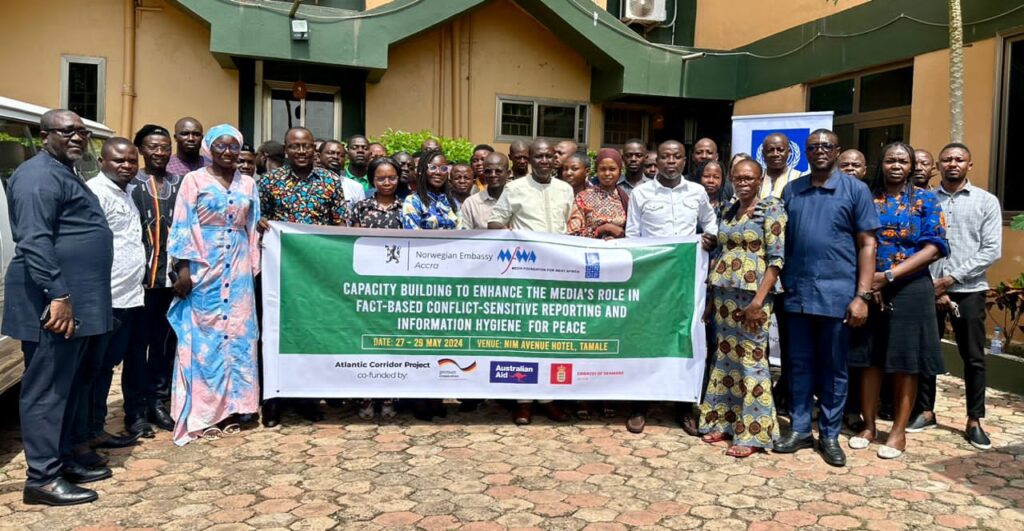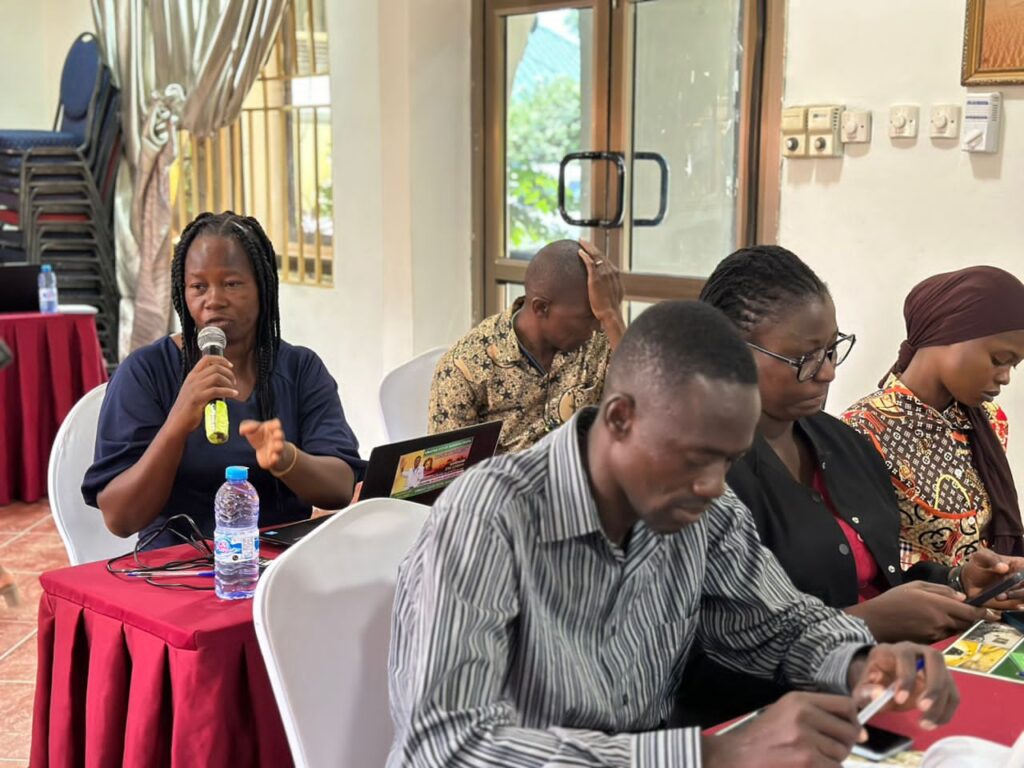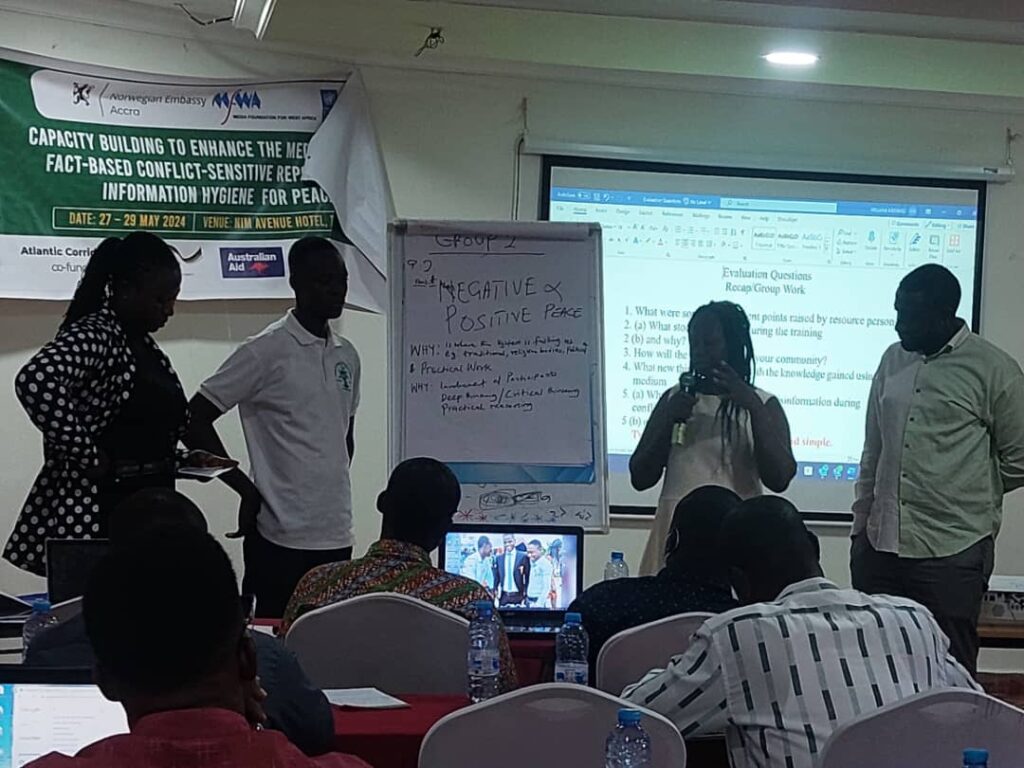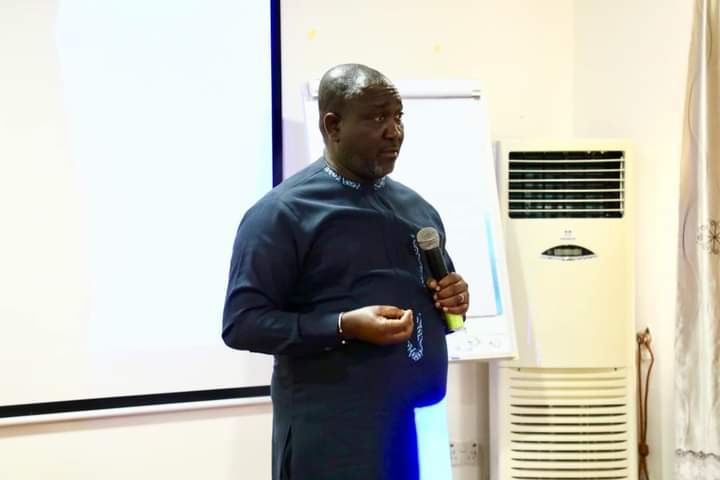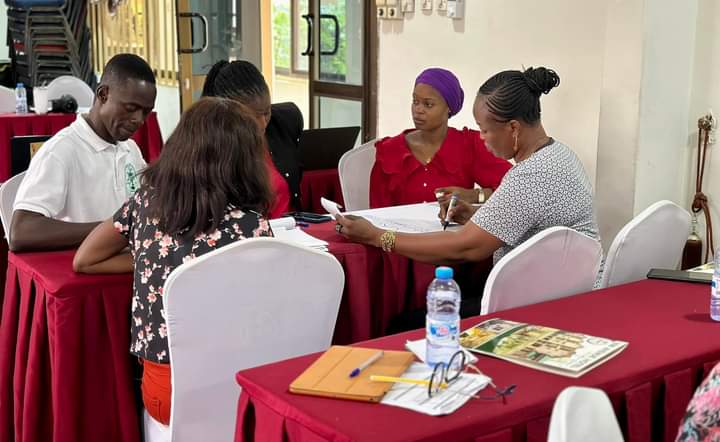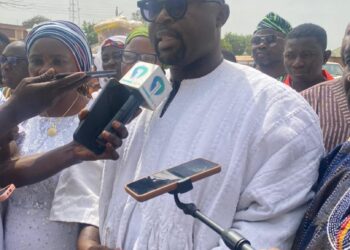The Media Foundation for West Africa (MFWA), with funding support from the United Nations Development Programme (UNDP) and Norwegian Embassy organized a 3-day training for journalists in the Savannah, Northern, North East, Upper East and Upper West regions to enhance the media’s role in fack-based conflict-sensitive reporting and information hygiene for peace as Ghana prepares for election 2024.
The training which took place in Tamale enhanced the skills of journalists in conflict and violence related issues, conflict sensitive reporting, approaches to fack-based reporting, peace journalism, preventing violent extremism and national response mechanisms, misinformation and disinformation concepts, practical fack checking verification procedures, triggers of insecurity and early warning, and a host of others.
The three-day training ran between 27th-29th May, 2024 at Nim Avenue Hotel, Tamale.
Dr. Angela Lusigi, UNDP Ghana Resident Representative said the UNDP recognizes the role disinformation, misinformation, and hate speech play in promoting electoral violence, hatred, and violent extremism, while undermining electoral processes and democratic values in Ghana and Africa.
Dr. Lusigi added that media act as a key source of information and has a significant influence on the public through its portrayal of events and
perspectives.
Again, discriminatory views against minority groups published by the media could for example fuel harassment and intimidation, which may drive radicalization and violent extremism.
Recognizing the gravity of these issues, UNDP in partnership with UNESCO and the wider UN team, is committed to addressing hate speech, disinformation and misinformation, in line with the UN Strategy and Plan of Action on Hate Speech.
Dr. Angela disclosed that availability of internet has increased social media usage in Africa with an estimated population of over 400 million users and 600 million people having access to the internet in the region with radio network remaining popular.
“Today, 400 million people use social
media and 600 million people have access to the internet in Africa. While radio remains the most popular among news sources, 4 in 10 Ghanaians get news from social media and the internet, according to the Afrobarometer survey in 2023. As a result, the widespread use of social media has given hate speech to a much larger audience online”.
Edward Fokuoh Ampratwum (PhD) read the speech on behalf of the Resident Representative.
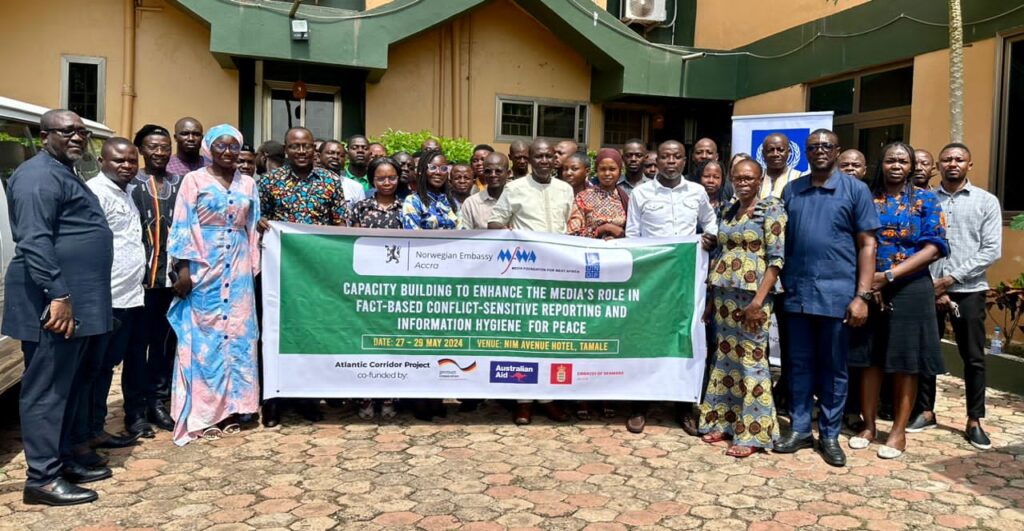
Dr. Kojo Impraim (PhD), programme Director for MFWA said the foundation has collaborated with UNDP and Norwegian Embassy to train fourty (40) Journalists from the Northern, Savannah, North East, Upper West and Upper East regions to enhance the knowledge and skills of the journalits to help halt hate speech and promote peace before, during and after the December 2024 elections in Ghana.
Dr. Kojo Impraim noted that the media needs to carefully analyse and offer platforms for programs that will build resilience in community members with the aim of promoting peace among communities.
Dr. Kojo Impraim cautioned the youth not to allow themselves to be used as violence elements by political actors. This will help run down tension in the country and promote the peace we desire. The media must play a crucial role to achieve this tremendous shift.
The role of media is extremely important in sensitizing and educating the youth against being used by some political actors in the country.
The media should therefore, partner with the National Peace Council, Electoral Commission, MFWA, Ghana Journalists Association, and Ghana Independent Broadcasters Association to carry out the activity. So essentially we want to encourage the media to be more circumspect, more factual, more balance and accurate in our reportage on the platform concerning peace and security in the country, he said.
Other Speakers and facilitators during the training include Alhaji Sani Razak from the National Peace Council, Mr. Albert Yelyang, the National Network Coordinator of the Ghana office for West Africa Network for Peace Building, Mr. George Sarpong, Executive Secretary for National Media Commission, and Kwaku Krobea Asante, Programme Officer and Team Lead, Fack-Check Ghana, MFWA.
Mr. George Sarpong, Executive Secretary of the National Media Commission noted that the media is a source of information and can influence the public. And appealed to the media to ensure fairness, accurate and transparency in line of duty to promote balanced reportage.
“The media acts as a source of information and influences the public through its perspectives. Therefore, in their reporting, they must ensure accuracy, fairness, and
transparency to ensure balanced reporting”~George Sarpong, Executive Secretary – National Media Commission, said.
Abdulai Zulkaninu // padfm.com.gh
